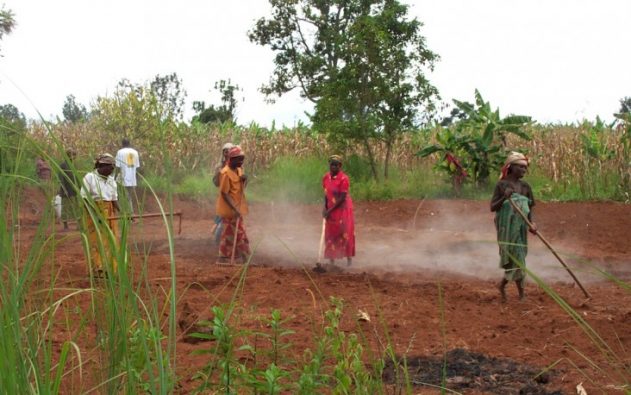Burundi’s northern and eastern regions are projected to experience stressed food security conditions (IPC Phase 2) from October 2024 through May 2025, according to a latest Food Security Outlook report.
The report by the Famine Early Warning System Networks (FEWS NET) indicates that key drivers to this crisis include high food prices, inconsistent rainfall patterns linked to La Niña, and restricted cross-border trade.
The economic pressures—combined with limited food stock and rising inflation—have exacerbated food access, with prices for staples like maize and beans soaring 30-80% compared to the previous year.
Burundi’s recent harvest from Season B helped alleviate some food shortages, but prices remain unusually high due to regional inflation, high transportation costs, and rising agricultural input expenses. As prices surge, households increasingly struggle to afford basic necessities, impacting dietary quality and quantity, especially in vulnerable areas.
Seasonal shifts are also complicating food security. A shift toward above-average rainfall due to El Niño is expected, which could lead to floods in lowland areas like the Imbo Plains. These floods could further disrupt the fragile food supply, damaging crops, infrastructure, and affecting local economies. The seasonal instability underscores the impact of climate variability on agriculture, intensifying the need for adaptive strategies in the region.
The crisis is particularly severe in Burundi’s Eastern Dry Plateaus and Northern Lowlands. Labor wages in these areas are about 65% below the national average, leaving many households unable to cope with the abnormal food price hikes. In October, households in these areas are expected to experience IPC Phase 3 (Crisis) levels of food insecurity as they face a lean period with limited resources.
Humanitarian agencies are stepping in, but funding shortfalls mean only partial assistance is available. Approximately 56,000 refugees in Burundi are receiving only half their usual food rations due to budget constraints. While the aid provides critical support, it is insufficient to fully meet caloric needs, leaving many at risk of deteriorating food security.
Looking forward, measures such as improved storage, food aid, and agricultural investments will be critical in helping stabilize food security. Strengthening resilience through climate-adaptive practices, such as crop diversification and improved storage facilities, is also necessary to address the long-term challenges Burundi faces.








